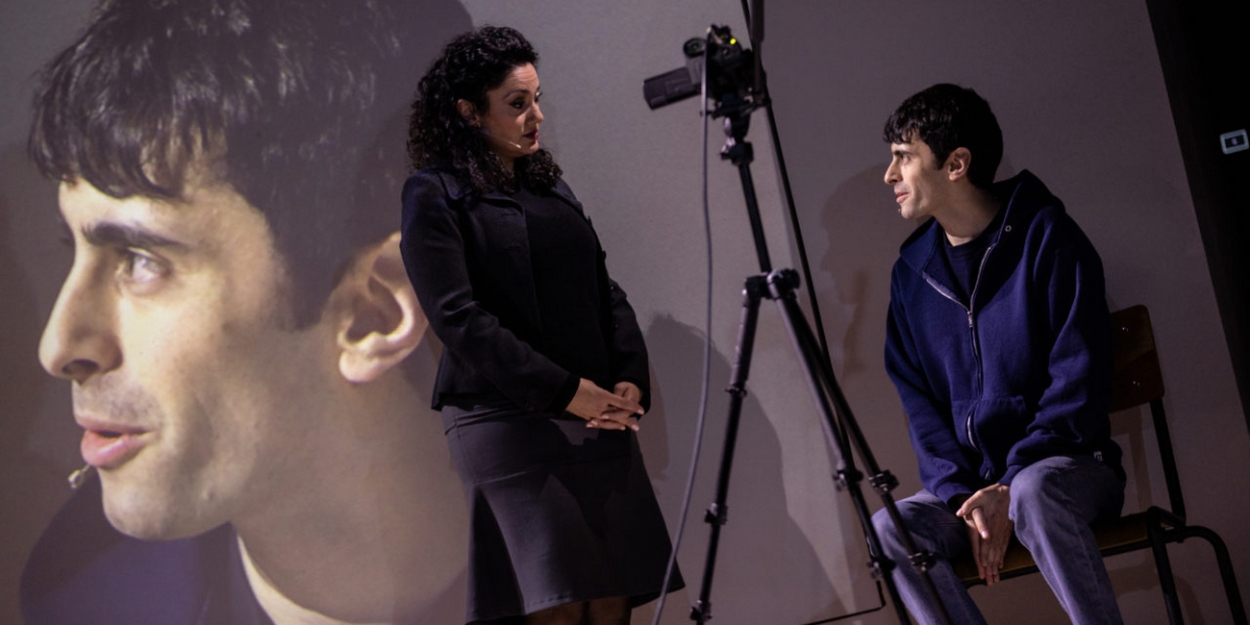Review: Kouyoumdjian-Vavrek ADORATION Is a Cautionary Tale at Prototype
Game cast gave nuanced performances at Sheen Center under director Laine Rettmer

Another year has come to an end for the Prototype Festival of new opera theatre-music theatre, under the banner of Beth Morrison Projects and HERE. For those of us who couldn’t make it to all the shows on display at various venues around town, it’s always something of a crapshoot: Which ones do you choose? Or, more importantly, which ones am I going to miss that I shouldn’t have? Not that anyone is ever looking for perfection. Hardly. “All” we want is to be stimulated, uncomfortable, challenged and/or, dare I say, even entertained (though that, too, is vague and different for all of us).
A week ago, for me, there was Huang Ruo’s ANGEL ISLAND at BAM, which was fascinating in many ways. This week, it was the Mary Kouyoumdjian-Royce Vavrek ADORATION, at the Sheen Center for Thought and Culture in the East Village. It is based on Atom Egoyan’s 2008 film, ADORATION, in which, as part of a school assignment, a teenager appropriates details from a historical terrorist attack as an event in which his parents played a role; he then lets it loose on the world.
Not having seen the film, I’m not sure how closely Royce Vavrek’s libretto for ADORATION (directed straightforwardly and crisply by Laine Rettmer) follows its course. However, having seen and heard the result of the adaptation that debuted here last week--dealing, the lies that people and families tell themselves and others to “get on with it”--I felt somewhat disappointed on a number of levels.
Full disclosure: I have a very personal relationship to 9/11—more than the average New Yorker--and when what looks like snowfall in the opera becomes debris, as it appeared when the Towers fell, I was alarmed and upset. So perhaps some of my reaction to the piece may have been skewed. However, I don’t think so.
First the good news. The piece was cast superbly, working their way through the interesting (though sometimes too complex) production from designer Afsoon Pajoufar, using projections by Camilla Tassi, video by April Goldberg and lighting by Scott Bolman, with costumes by Rachel Dainer-Best.
Special kudos must go to full-voiced soprano Miriam Khalil as Sabine, Simon’s teacher--and a mysterious character who turned out to be more than she said she was, and did very well by some of the evening’s most pungently impactful music,. The suave baritone David Adam Moore, as Simon’s uncle, Tom, had a tricky role to navigate and he succeeded quite well. Simon himself, tenor Omar Najmi, was excellent as the teenaged iteration of the character played earlier by the seemingly innocent Sammy Ivany, though the character was somewhat sketchy.
Broadway stalwart, baritone Marc Kudisch, was almost scary as the grandfather, angry and willing to take no prisoners when he accuses Simon’s father (the striking tenor Karim Sulayman) of being more than the victim (along with his mother, well-sung and -acted by mezzo Naomi Louisa O’Connell) in a fatal car crash.
For me, the decision to have the Silvana string quartet (Gillian Gallagher, Nicole Sharlow, Courtney Orlando and Maria Bella Jeffers) under music director Alan Pierson performing offstage gave its music an almost incidental character. This could hardly have been the intention of composer Kouyoumdjian, whose score brought subtlety and insight to the evening, working with Vavrek’s libretto.
The work is structured to make Simon the center of the story of his family, but it seemed to me that it was Sabine who really held it all together, especially in the hands of soprano Khalil. In a way, it could almost have been a monodrama about Sabine, which would have left more room for the score to take over the more important role that I think it asked for.
Photo: Miriam Khalil and Omar Najmi
Photo by Maria Baranova
Reader Reviews

Videos
